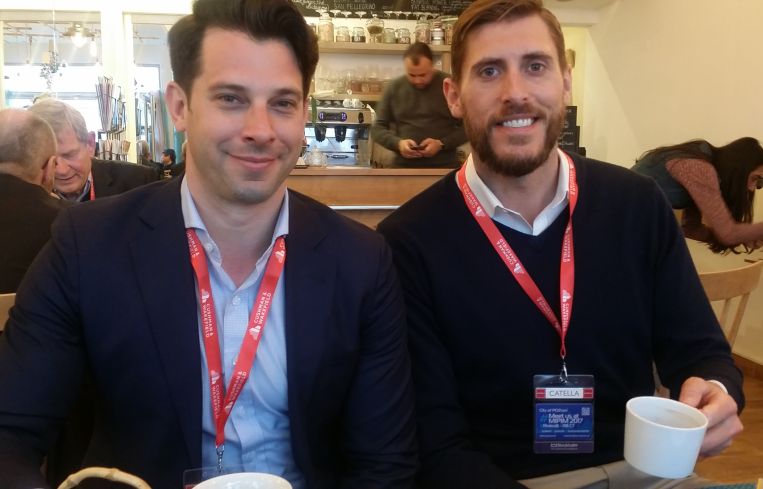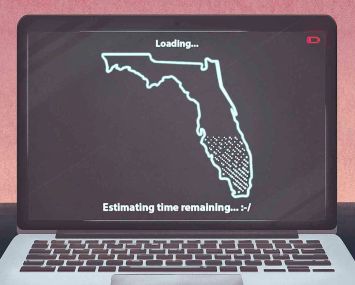MIPIM 17: VTS on Tech, MIPIM and Dwayne Johnson
By Liam La Guerre March 17, 2017 5:03 pm
reprints
On the heels of MIPIM’s announcement of a tech conference in New York City this fall, VTS’ Chief Product Officer Brandon Weber and Chief Executive Officer Nick Romito, were a hot commodity in Cannes.
For Weber and Romito—who had rivaling asset management platforms until last year when they merged HighTower (Weber’s tech company) with VTS—business has been booming. By the first half of 2016, VTS was managing about 3 billion square feet of property worldview. Now it is nearly 6 billion. Romito and Weber sat down with Commercial Observer to talk about MIPIM, new services from VTS and their differences in sports culture.
You both are very active sports guys. How did you get into sports?
BW: We go about it differently. I’m more of an endurance, fitness guy. I played football in college and it took up a ton of my time and then after I graduated, I was like I need something physical to do and organize my life around it. And for me it became endurance sports.
So you do marathons?
BW: Yeah. I run ultra marathons. I have run 50-mile trail races in the middle of nowhere. I did a 100-mile self-supported run around Mount Rainier in Seattle, Wa. I have done Iron Man. I got into triathlons and stuff. When I am finished with even a five- or six-mile run, my brain functions 20 percent better and I am a happier human being.
Nick, you don’t do the endurance sports?
NR: I grew up surfing competitively. If you surf five days a week, two hours a day, you are in pretty good shape. As I started to do that less, because I had a family and live in the city, I had to find another way to just get that out of me. It is a stress reliever—training hard for like an hour a day. Do you guys follow Dwayne Johnson on Instagram?
I don’t.
NR: He has the best Instagram by far?
BW: Does he really?
NR: He gets up everyday and he is in the gym everyday at 4 a.m. And he videos it to show you like I’m up and you’re not. That’s his anchor. If I don’t do that everyday, I’m off.
So you guys have been at the conference a few days now, what have you found impressive?
NR: This is my third MIPIM, so I have been here two years before. What continues to be impressive for me is the amount of people that are here and the amount of business that actually gets done. People are really doing work. I was just with someone and he said, “I’m going to close a deal right now.”
BW: From my perspective we are trying to increase the speed at which we get adopted across Europe, and they are so on board. They are, like, “Okay, let’s talk about how we can help each other and let’s move on.” We leave each meeting staring at the Mediterranean saying, “Okay, next step let’s get your people and we are going to do a demo with them.”
Are you feeling a tech impact through MIPIM?
BW: The second-most impressive thing is how embedded now property tech is becoming in this conference. Years ago it did not exist. Literally, there were zero panels three years ago about property technology innovation and now there is an entire start up competition. We are now getting greeted by the largest property owners, and they are like, “We know about you guys and this whole digital strategy thing is moving up our priority list.”
NR: The person that is now interested in property tech has changed. It used to be the leasing person or the property manager and that is how we kind of worked our way up the organization. Now the guys we are getting meetings with this year are the CEOs.
Would you say you are in the property management business?
NR: I wouldn’t call it property management. We call it leasing and asset management.
BW: The way to think about it is, the only reason a property gets built is to generate revenue from that property. We are the platform that enables that team to better track that leasing, streamline the leasing so they can do more of it at better rental rates and reduce a lot of leasing risk.
Have you seen any commercial real estate tech startups at MIPIM that jumped out at you?
BW: When you are doing what we are doing we are pretty heads down, solving our customer’s problems.
So you’re too busy working on improving your product. But are there any interesting tech companies that catch your eye?
BW: It’s not a technology company, but it’s a technology move. CBRE (CBRE)’s acquisition of Floored, I thought was an interesting shot by the largest commercial real estate brokerage firm—which most people consider brokerage being like the furthest away from technology innovation. I think it just puts a really strong stake in the ground that they’re going to double-down on finding ways to leverage technology to future-proof their business. Disrupt themselves before they get disrupted. That’s pretty exciting.
What are you working on to solve customer’s problems?
BW: Well, from a product strategy standpoint since the merger we’ve been integrating the technologies. So we have a ton of work to do to merge two platforms and get all these features on one system.
I heard about the benchmarking technology feature that you are investing in. What is benchmarking?
BW: So if I’m an owner of a property, understanding how my property is performing relative to other benchmarks—either other properties in my portfolio or the market around us—is like one of the most important analytics that you can do. Because they want to know am I outperforming or am I underperforming the market? Am I outperforming or underperforming the portfolio? And then they will go make decisions. If it’s underperforming, they might sell.
NR: That view or that lens just doesn’t exist today. There is no way to know how I’m doing. Because you are looking at market comps which is old information. We want to tell you what’s happening today. Has it leased or signed today? I think we have got the strategy and the customers are now ready for it whereas years ago they weren’t. It’s a sensitive topic right. You are talking about data. We really wanted to wait until the market was ready. And that’s where we are.
What’s another thing that you are working on?
NR: Deal Score, where, basically the goal is to be able to better predict the outcome of a deal—whether a deal is going to close or not and when. Using the data that we have in our platform, which is a lot, running algorithm and identify what are the main drivers of when a deal is going to close.
Like price?
BW: Actually, it’s a lot more nuance than price. Like how often they’ve communicated.
NR: And, who are you talking to. Is it the asset manager or the head of real estate?
BW: How many proposals have been traded in the last two weeks. The frequency of communications are actually a really good predictor of how long it stays in the pipeline and when the deal is going to close. So we can understand that algorithmically. We could give a massive owner, like Brookfield or Boston Properties, a much more accurate view of when deals are going to close, so they could better forecast.
NR: Another example is even like recommendations. I always thought it was baffling how LinkedIn was like, you should connect with so and so. I’m like “I know that guy.” We can do the same thing with leasing. With these deals in the pipeline, these are the perfect spaces that you have in your portfolio for that based on the data that the tenant rep has communicated that they want: size, density, ceiling heights.
How big is your portfolio of properties on VTS?
BW: We are getting close to 6 billion square feet on the platform.
NR: And that’s everywhere that we operate: U.S., Canada, the U.K., markets around continental Europe. We have real estate in Chile. We are active in over a dozen countries.
There must be big companies trying to acquire VTS right? Do you get bids and is there a price?
NR: No, there is no price. We get asked a lot. We have a pretty clear 20/20 vision of where we want to go. The result is us becoming a really big company that does the acquiring not being acquired.
Why?
BW: It’s just so obvious for us. Our business is growing pretty fast. We are at this unique time in history where a technology company is just going to completely transform the whole industry globally and we are one of those companies that are pretty well-positioned to do it. People are going to look back and go, “I remember a time when times were way worse, and thanks to these guys we improved.”
NR: It’s the dream.


